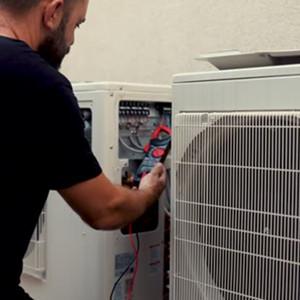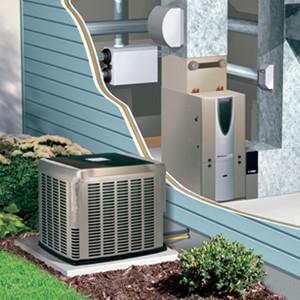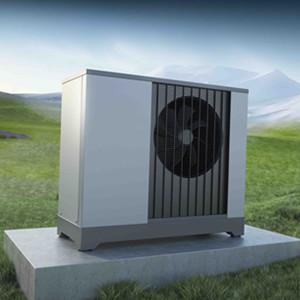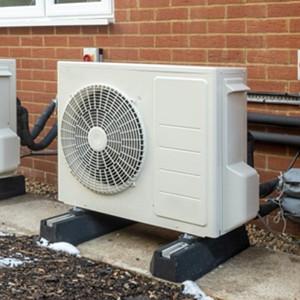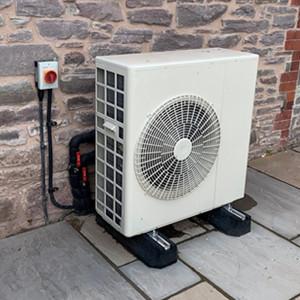Air Source Heat Pumps are they any Good
Air source heat pumps are increasingly becoming a popular method of heating homes. They are a cost-effective alternative to central heating, electric heating or thermal storage heating. First, they work by transferring heat from outside to inside and vice versa. They can be used alone or as a complement to a gas heating system. Having a well-insulated home helps you get the most out of your heat pump. Find out if an air source heat pump is right for you.
Are Air Source Heat Pumps Worth It?
Yes. An air source heat pump can typically save you £1,760 over its lifetime compared to a gas boiler - meaning you can actually cut costs by going green.
This is thanks to rising gas prices, the government's boiler upgrade program, gas boiler bans, heat pump efficiency improvements and the need to replace boilers after 10 years - unlike heat pumps, which typically last 20 years.
You should also consider whether you need to replace the radiator or install underfloor heating, which could add to your bill.
Let's look at each of these factors in turn.
1. Changes in energy costs
Air source heat pumps are typically 300% more efficient than gas boilers (up to 500% efficient), but they are powered by electricity, which currently costs 28p per kWh in the UK - 7p per kWh for natural gas four times the price.
However, times are changing. Wholesale gas prices have risen by 335% in the past 12 months, causing millions of households to pay hundreds of pounds more a year - and it's expected to keep climbing.
By 2030, the average price of natural gas will rise by 50% - much more expensive than it is today, according to the independent Climate Change Commission.
While gas prices are rising, electricity is getting cheaper.
As this is a forecast for 2050, we didn't include it in our calculations, but the government's National Infrastructure Commission (NIC) estimates electricity costs will be 12.8p per kWh by then.
The NIC predicts that if heat pumps become particularly popular, the average price could even drop to 11.7p per kilowatt-hour, which would be 58% lower than current levels.
These changes make 60% of residents want to switch from gas boilers to renewable energy alternatives.
You can save even more money by investing in solar panels to power your heat pump and electricity needs.
2. Government subsidies
The government's Renewable Heat Incentive Scheme (RHI) ends in March 2022.
If you have access to RHI before then, the government will send you seven-year quarterly payments based on the amount of electricity your air source heat pump is expected to generate.
The last RHI tariff was 10.92p per kWh, much better than the top Smart Export Guarantee rate of 7.5p per kWh.
In April 2022, the RHI was replaced by the Boiler Upgrade Scheme. The new scheme will provide you with a subsidy of £5,000 for installing an air source heat pump and £6,000 for your new ground source heat pump.
Considering that an air source heat pump typically costs £10,000 to buy and install (although the cost may increase depending on your home's heating setup), you can get a great machine for half the price - the savings will pay off in spades .
Using a gas boiler to heat your home would normally cost you a total of £28,600 over 20 years, while using an average air source heat pump would cost you £27,640 - a saving of £1,760.
This is partly because heat pumps only need to be replaced every 20 years, while gas boilers should be replaced every 10 years.
So heating your home with gas will mean you pay another £4,000 when your heat pump is just entering the second half of its life.
Even though natural gas is currently cheaper than electricity, heat pumps will be cheaper overall.
There are a few other grants available to low-income families everywhere. Want to learn more? Go to our Air Source Heat Pump Government Grants page.

3. Gas boiler ban
The boiler upgrade plan was apparently made with a ban on gas-fired boilers in mind (and a related target of 600,000 heat pumps installed in homes a year by 2028), although the government refused to commit to an exact date for the ban.
In November 2020, Downing Street announced the ban would start in 2023, before backtracking and saying there was "confusion".
The spokesman also told BBC News that the prime minister's office "has consulted on introducing this issue by 2025 and will work out further details in due course."
When asked by ecological experts if a date for the gas boiler ban had been set, a spokesman for the Department for Business, Energy and Industrial Strategy replied: "We do not comment on speculation.
"We will develop plans for heating and building decarbonisation through our comprehensive strategy this year, and our approach will be guided by ensuring the transition is fair, affordable and practical."
Now it looks like the ban will come in 2035 - with gas heating expected to end entirely by 2040 - so it makes sense to use government moves to comply with the new rules. Many Britons welcomed the news, as 62% of UK residents said they wanted the government to invest in green energy and stay away from gas.
If you want to speed up the process of finding the perfect heat pump, simply use our quote comparison tool and our experts will get in touch with them and offer you the best price.
4. Growing Demand and Increased Efficiency
In announcing plans for boiler upgrades, the government pointed to the growing popularity of heat pumps.
"We expect that most applicants will likely choose air-source heat pumps to transition to low-carbon heat, as these heat pumps cost less than other low-carbon heat alternatives," it explained.
"This also reflects RHI's pattern, with 81.5% of approved domestic installations in 2019 being air source heat pumps."
As demand increases, supply is likely to increase as well, which will significantly reduce air source heat pump costs in the coming years.
Heat pumps are also becoming more efficient. The average ratio is 300%, but top models have reached 500%, which will allow you to save even more on energy bills over the life of the machine.
Combine this with the impending ban on gas boilers and buying a heat pump makes sense.
Do you need to replace your radiator?
Most homes will need larger radiators to use their new heat pump efficiently.
Underfloor heating is also an excellent way to dissipate heat using a heat pump, although this is usually only done on the first floor of your home.
Why might you need to make these changes? Well, heat pumps produce a low flow of heat, which means they produce the same amount of heat, but at a lower temperature and over a longer time span.
That's why they need more surface area to warm your home.
It also means your radiators may not get very hot when you touch them, even though they're actively heating your home -- an added bonus if you don't like getting burned.
Still, you should contact some heat pump companies for a free quote, as it's worth checking if you need a new radiator or underfloor heating.
What are the benefits of an air source heat pump?
Air source heat pumps are highly efficient, cooling and heating your home, and can generate energy from the air—a fully renewable resource.
There's a reason why 22% of households in Europe, North America and northern Asia will be equipped with air source heat pumps by 2030, according to the International Energy Agency.
Additionally, the boiler upgrade scheme means you can save £1,760 over the life of your heat pump compared to a gas boiler.
In addition to this financial benefit, according to the Energy Savings Trust, you can save 2.6 tons of greenhouse gas emissions from your annual total by replacing your gas boiler with a heat pump.
This is an astonishing reduction, reducing your annual carbon footprint by 44% in one fell swoop.
If you currently have an oil boiler, you can save at least four tons of CO2 per year, and even if you use an electric storage heater, buying a heat pump can save you more than two tons.
After installing a new heat pump - a big discount on government funding - you can get a discount for the next 20 years.
Heat pump as air conditioner
Air source heat pumps can also reverse their entire purpose of providing cool air in the hot summer months -- and those days are only getting more frequent.
A dual-select heat pump turns it on and expels hot air from inside the house, rather than sucking in air from outside and releasing its heat into your home.
What's more, it also cools a portion of the hot air and releases cool gusts into your home, just like an air conditioner.
Can a gas boiler do it? Absolutely not.
Are air source heat pumps noisy?
The government prohibits air source heat pumps from exceeding 42 decibels one meter from your nearest neighbor's window or door.
This relatively low level of noise is equivalent to the background hum of a refrigerator, a quiet library, or the noise of the suburbs at night.
The 42dB limit can be circumvented by applying for special planning permission, but this is not required as the heat pump was built with the 2012 regulation in mind.
Should I buy a heat pump?
Currently, heat pumps will provide the best value for money for households not connected to the national grid for gas. For years, homes without natural gas had to deal with expensive heating and hot water options. Heat pumps offer significant cost savings and convenience compared to solid fuels such as oil, electricity, LPG and wood or coal.
To maximize heat pump efficiency, it is best to use floor or warm air heating if possible. Since an air pump basically works by taking latent heat from the outdoors and putting it indoors, good insulation is essential to getting the most out of your home's heat pump system.
If you live in an older home with poor insulation, installing a heat pump should be part of a broader home improvement investment, including better insulation and window glazing to maximize energy efficiency.
